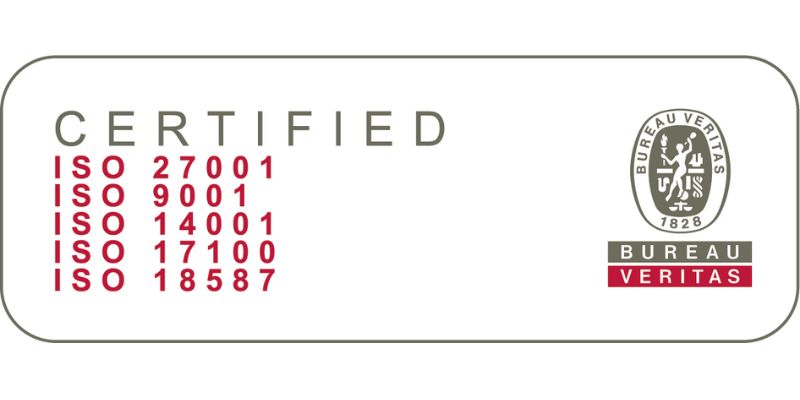What is the European Accessibility Act?
The European Accessibility Act (EAA) is a groundbreaking regulation that will take full effect in June 2025, requiring digital services and websites to meet strict accessibility standards. This act is designed to ensure that people with disabilities can access online content and services without barriers. Failure to comply may result in legal consequences, financial penalties, and reputational damage for businesses operating in the EU countries.
Why You Need to Act Now
- Avoid legal risks – Non-compliance with the EAA can lead to regulatory penalties and legal action.
- Expand your audience – An accessible website attracts a broader customer base, including users with disabilities.
- Enhance user experience – Accessibility improvements benefit all users, not just those with impairments.
- Strengthen your brand’s reputation – Demonstrate your commitment to inclusion and corporate responsibility.
How We Can Help You Stay Compliant
At Skrivanek, we specialize in making websites accessible and EAA-compliant. Our services include:
-
Accessibility audits – Evaluating your website’s compliance and providing a roadmap for necessary improvements.
-
Content simplification – Adapting text to make it clearer and more understandable.
-
Multilingual accessibility – Making your site accessible in multiple languages.
-
Subtitles & transcripts – Adding captions and written transcripts to your videos and audio content.
-
Alternative text for images – Ensuring all visual content is properly described for screen readers.
-
Structuring content correctly – Using headings, contrast, and clear formatting for better readability.
-
Accessible interactive elements – Optimizing buttons, forms, and navigation for all users.
Ensure Your Website Meets EAA Standards – Contact Us Today!
Who Does the EAA Apply To?
The European Accessibility Act applies to all businesses that offer digital products and services within the EU, including:
- E-commerce platforms
- Banking and financial services
- Telecommunications providers
- Transport services (booking platforms, digital schedules, etc.)
- Public sector websites
- Media and entertainment platforms
- Websites of businesses serving consumers
If your website is not accessible, you could face compliance issues, potential fines, and a loss of customers who require accessible digital experiences.
Do You Meet European Accessibility Act Compliance Requirements?
To comply with the EAA, your website must meet accessibility standards based on WCAG 2.1 (Web Content Accessibility Guidelines). Some of the key requirements include:
- Clear and readable text – Adequate contrast, structured formatting (H1, H2, H3, etc.), and simple, easy-to-understand language.
- Alternative text for images – Ensuring visually impaired users can understand content.
- Subtitles and transcripts – Adding captions to videos and podcasts.
- Screen reader compatibility – Enabling navigation for blind or visually impaired users.
- Keyboard-friendly navigation – Ensuring all functionalities can be accessed without a mouse.
- Clear and structured forms – Labels, error messages, and easy-to-use input fields.
- Web content accessibility improvements – Enhancing text readability, structuring information clearly, and ensuring multimedia content is fully accessible.
If you’re unsure whether your website meets these requirements, a compliance audit is your first step toward avoiding penalties.




How Does Accessibility Benefit Your Business?
Improving web accessibility is not just about compliance—it’s about creating a better user experience for everyone. Websites that prioritize accessibility tend to have higher engagement rates, lower bounce rates, and improved SEO rankings. By making your website easy to navigate and understand, you create a seamless experience that benefits all visitors, not just those with disabilities.
Additionally, investing in accessibility enhances your brand’s reputation and trustworthiness. Consumers are more likely to support businesses that are inclusive and socially responsible. Meeting EAA standards is an opportunity to show that your company values all users and is committed to providing an equal digital experience.
The Cost of Non-Compliance
Failing to meet European Accessibility Act requirements can have serious financial consequences. EU member states will enforce compliance with fines and penalties, which could vary depending on the severity of the violations. Aside from legal risks, non-compliance can lead to lost revenue opportunities, as a significant portion of the population—over 135 million people in Europe alone—faces some form of disability.
Ignoring accessibility means turning away potential customers who may be unable to use your website properly. Can your business afford to lose market share due to inaccessibility?
FAQs
Non-compliance can lead to fines, legal action, and reputational damage. Each EU member state enforces penalties differently, but businesses that fail to meet accessibility standards risk significant consequences.
The best way to determine compliance is through an accessibility audit. Our team will assess your website against WCAG 2.1 standards and provide a roadmap for necessary improvements.
Yes! An accessible website improves user experience, increases engagement, boosts SEO rankings, and helps you reach a wider audience, including people with disabilities.
The timeline depends on your website’s current state. Some websites only need minor adjustments, while others may require a complete redesign. We provide customized solutions to fit your needs.
Absolutely! We specialize in multilingual accessibility, ensuring that your content is available and accessible in different languages to serve global audiences.
Take Action Today
The EAA compliance deadline is fast approaching. Don’t wait until the last minute to make critical changes. Our team of experts is ready to assess your website and guide you through the necessary adjustments.
Schedule an accessibility audit today and ensure your website meets EAA 2025 requirements!